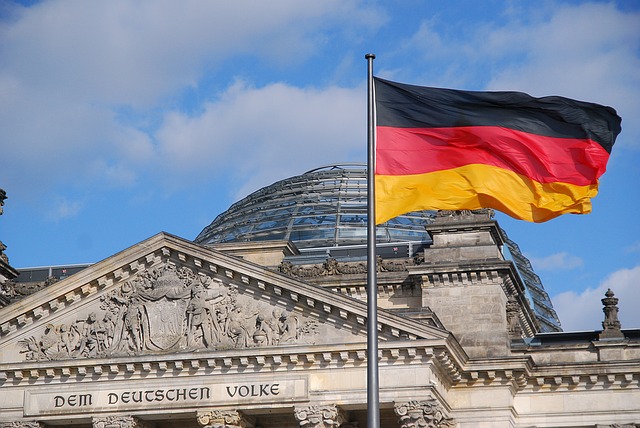October 11, 2023
Energy problems burden production in Germany
IHK energy transition barometer: Companies assess location more and more critically
Confidence in energy policy among German businesses is currently at an all-time low. This is shown by the IHK organization’s Energy Transition Barometer 2023, in which 3,572 companies from all sectors and regions took part. It shows the worst value since the start of the surveys in 2012.
“Worries about their own competitiveness have never been greater,” said Achim Dercks, Deputy Chief Executive of the German Chamber of Industry and Commerce (DIHK), when the survey results were presented in Berlin on August 29.
“While companies used to also see opportunities in the energy transition, the risks now outweigh the opportunities in the assessment of the economy as a whole,” Dercks said. “Large parts of our economy are strongly driven by concerns about an inadequate energy supply, even in the medium and long term. This is an overall worrying development that we should all take very seriously.”
Overall, companies in Germany expect significantly more risks than opportunities for their own competitiveness: For 52 percent of companies, the energy transition will have a very negative or negative impact on their own business, and for only 13 percent a very positive or positive impact. On balance, on a scale of minus 100 (“very negative”) to plus 100 (“very positive”), the barometer value is minus 27. In the last two years, the value was only minus 7; the previous low of minus 13 in 2014 was the result of additional energy levies and charges.
In energy-intensive industry, as many as three quarters of companies see themselves negatively or very negatively affected. “Given the great importance of industry for the entire business location, these figures are alarming,” warned Dercks. “Even in sectors that often benefit directly from orders as part of the energy turnaround – such as the construction industry and services – the barometer shows that sentiment is clearly clouding over.”
Energy policy becomes an obstacle to transformation
A central trigger for the negative assessments of the companies is the energy policy consequences of the Russian war of aggression against Ukraine. “This development is making it much more difficult to implement the energy transition,” Dercks clarified. “Our survey shows: Unfortunately, policymakers have so far failed to successfully counteract this in a sustainable manner. After the energy price shock at the end of last year and the relatively mild winter, companies are deeply concerned about future developments. They see their competitiveness being called into question.”
Energy prices remained at a high level, and there was a lack of prospects for the economy in Germany, the DIHK deputy managing director concluded. “The central questions have not been answered.”
From the point of view of the companies, a lack of predictability and reliability in energy policy move to the top of the list of obstacles to transformation. Almost 60 percent of companies feel thwarted by this. “Companies are increasingly confronted with targets that are almost impossible to implement in practice,” Dercks criticized. “Added to this are savings targets from the Energy Efficiency Act, which no one can say how they can be achieved without shutting down production.”
This is reflected in the barometer: Three quarters of companies are scaling back their investment activities. In the energy-intensive industry, almost half of the companies are even restricting their investments in core areas. “This is the opposite of the investment upswing we need to overcome the current crises and accelerate the transformation toward climate neutrality,” Dercks said.
Energy transition intensifies migration
Among companies as a whole, the voices that want to take on the challenges of energy policy in Germany still predominate. Loyalty to the location remains strong among many companies.
In industry, however, and especially among large companies, plans to turn their backs on Germany as a business location are increasing significantly. Almost one third of industrial companies (32 percent) are planning or implementing the relocation of capacities abroad or the reduction of their production in Germany – an increase of 16 percentage points, i.e. double the figure for the previous year.
“Politicians must take countermeasures here as quickly as possible to give the economy a perspective in Germany,” warned Achim Dercks. “The DIHK has drawn up five points to secure the energy supply for companies. Their rapid implementation is important for Germany as a business location.”
Source: Association of German Chambers of Commerce and Industry – DIHK
Legal Notice: The information in this article is intended for information purposes only. It is not intended for professional information purposes specific to a person or an institution. Every institution has different requirements because of its own circumstances even though they bear a resemblance to each other. Consequently, it is your interest to consult on an expert before taking a decision based on information stated in this article and putting into practice. Neither Karen Audit nor related person or institutions are not responsible for any damages or losses that might occur in consequence of the use of the information in this article by private or formal, real or legal person and institutions.






